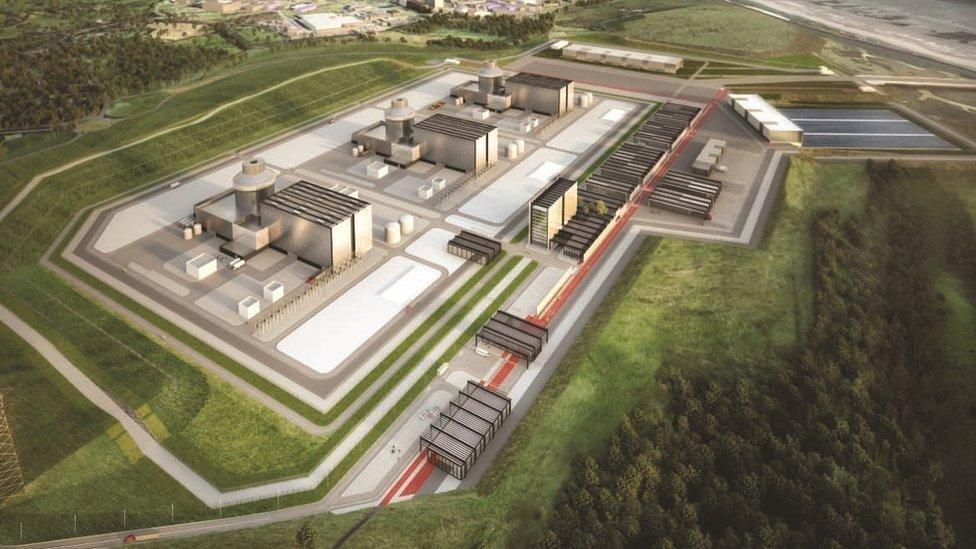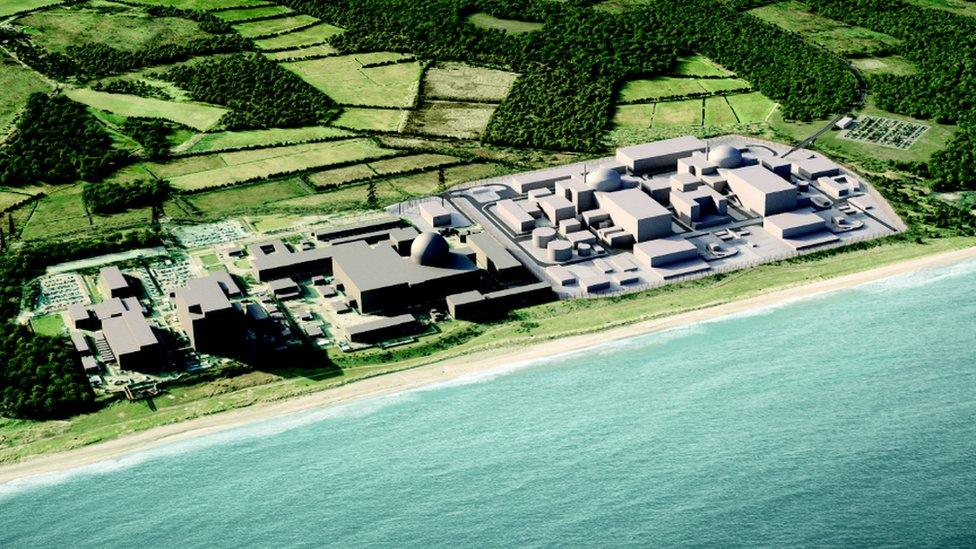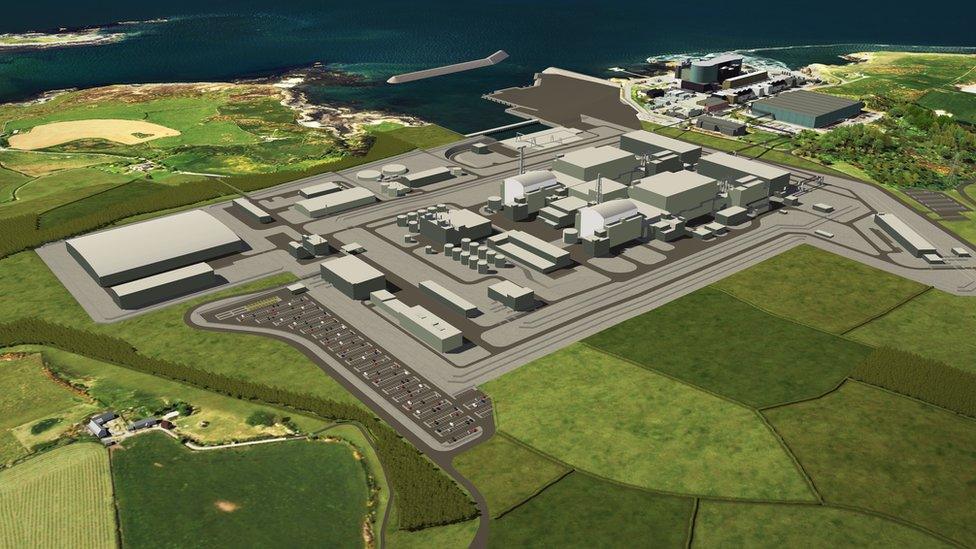Nuclear power funding plan worries Cumbria councillors
- Published

The Moorside nuclear power station was proposed for a site near Sellafield
Council bosses have raised concerns over government plans to fund large-scale nuclear projects through residents' electricity bills.
The funding model proposed last month, external would let energy companies charge consumers a set amount, to be spent on future infrastructure provision.
The government said it was "essential" to attract private finance.
But councillors in Copeland, Cumbria, are worried residents could have to pay for plants that may never be built.
The chairman of the council's strategic nuclear and energy board, Steven Morgan, was concerned they would be paying for a plant "long before it returns any electricity".
"This does reduce the financing cost and therefore reduces what you have to pay in the long run," he said.
"But, in the near term, you are paying for plants that haven't been built yet and may never be built."
'Fair sharing'
Endorsing a "substantial increase in our electricity rates" to pay for new nuclear plants was "not something we should sleepwalk into", Mr Morgan said.
The regulated asset base model is intended to attract investment by shifting risk from developer to taxpayer, following the high-profile collapse of Cumbria's Moorside project, the Local Democracy Reporting Service said.
It would require all UK electricity customers to pay in advance through their bills.
It would also allow investors to receive financial returns before the projects have been completed.
The Department for Business, Energy & Industrial Strategy said it would mean "a fair sharing of costs and risks between consumers and investors" overseen by a regulator.
The government is running a consultation on the proposals until October.

Follow BBC North East & Cumbria on Twitter, external, Facebook, external and Instagram, external. Send your story ideas to northeastandcumbria@bbc.co.uk
- Published23 July 2019

- Published23 July 2019

- Published14 January 2019

- Published17 January 2019